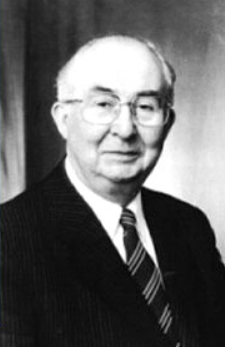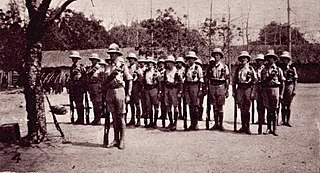Related Research Articles
The History of Malawi covers the area of present-day Malawi. The region was once part of the Maravi Empire. In colonial times, the territory was ruled by the British, under whose control it was known first as British Central Africa and later Nyasaland. It becomes part of the Federation of Rhodesia and Nyasaland. The country achieved full independence, as Malawi, in 1964. After independence, Malawi was ruled as a one-party state under Hastings Banda until 1994.
The African Baptist Assembly of Malawi is a Baptist Christian denomination in Malawi. It is affiliated with the Baptist World Alliance. The headquarters is in Chilembwe.

Public holidays in the Philippines are of two types: regular holidays and special non-working days.

John Nkologo Chilembwe was a Baptist pastor, educator and revolutionary who trained as a minister in the United States, returning to Nyasaland in 1901. He was an early figure in the resistance to colonialism in Nyasaland (Malawi), opposing both the treatment of Africans working in agriculture on European-owned plantations and the colonial government's failure to promote the social and political advancement of Africans. Soon after the outbreak of the First World War, Chilembwe organised an unsuccessful armed uprising against colonial rule. Today, Chilembwe is celebrated as a hero of independence in some African countries, and John Chilembwe Day is observed annually on 15 January in Malawi.

The Chilembwe uprising was a rebellion against British colonial rule in Nyasaland which took place in January 1915. It was led by John Chilembwe, an American-educated Baptist minister. Based around his church in the village of Mbombwe in the south-east of the colony, the leaders of the revolt were mainly from an emerging black middle class. They were motivated by grievances against the British colonial system, which included forced labour, racial discrimination and new demands imposed on the African population following the outbreak of World War I.
Joseph Booth was an English missionary working in British Central Africa and South Africa. In his 30s, Booth abandoned his career as a businessman and, for the rest of his life, he undertook missionary work for several Christian denominations including Baptist, Seventh Day Baptist and Seventh-day Adventist churches, and he was appointed a missionary by the Watch Tower Bible and Tract Society of Pennsylvania. Throughout his successive ministries, his defining beliefs were a radical egalitarianism, including a scheme of "Africa for the Africans"’ and, from 1898, Seventh-Day Sabbath (Sabbatarian) observance.
James Ralph Nthinda Chinyama was a leading member of the Nyasaland African Congress (NAC) during the period of British colonial rule in Nyasaland, which became the independent state of Malawi in 1964.
A. L. Bruce Estates was one of three largest owners of agricultural estates in colonial Nyasaland. Alexander Low Bruce, the son-in-law of David Livingstone, acquired a large estate at Magomero in the Shire Highlands of Nyasaland in 1893, together with two smaller ones. On his death, these estates were to operate as a trust to bring Christianity and Commerce to Central Africa. However his two sons later formed a commercial company which bought the estates from the trust. The company gained a reputation for the harsh exploitation and ill-treatment of its tenants under a labour system known by the African term "thangata", which operated in the plantation cultivation of cotton and tobacco. This exploitation was one of the causes of the 1915 uprising led by John Chilembwe, which resulted in the deaths of three of the company's European employees. After the failure of its own cotton and tobacco plantations, the company forced its tenants to grow tobacco rather than food on their own land and significantly underpaid them. Following almost three decades of losses, the Magomero estate was in poor condition, but the company was able to sell it at a profit between 1949 and 1952 because the government needed land for resettlement of African former tenants evicted from private estates. The company was liquidated in 1959.
William Jervis Livingstone (1865–1915) was the manager of the Magomero Estate in Nyasaland owned by A L Bruce Estates Ltd and was killed in 1915 during the uprising against colonial rule led by John Chilembwe. Livingstone, from the Isle of Lismore in Argyllshire, Scotland, was born in 1865 and appointed as manager of Magomero in 1893.
The MV Chilembwe is a passenger ship operating on Lake Malawi, named after Malawian freedom fighter John Chilembwe. It was launched in 2014 to partly replace the over 60 years old MV Ilala.
George Simeon Mwase was a government clerk and later businessman and politician in colonial Nyasaland. He became politically active in the 1920s under the influence of the ideas of Marcus Garvey and his "Africa for the Africans" movement, and was instrumental in founding the Central Province Native Association in 1927. Mwase joined the Nyasaland African Congress (NAC) in 1944, soon after its formation, and later participated in its executive. By the late 1950s, the gradualism of Mwase and many of his contemporaries was rejected by a younger generation of more radical NAC members. He was marginalised and left the NAC and became a supporter of the Federation of Rhodesia and Nyasaland.
Charles Vincente Domingo was born in Mozambique but spent most of his life in northern Nyasaland, where he was educated at the Free Church of Scotland (1843-1900) mission at Livingstonia. He later became a teacher and licensed preacher there, but left the Free Church in 1908 over delays to his ordination and he later established an independent Seventh Day Baptist church and school in the Mzimba district. Domingo was one of three Africans sponsored by Joseph Booth who created independent churches in Nyasaland in the early 20th century, the others being John Chilembwe and Elliot Kamwana. Domingo did not favour armed revolt, as Chilembwe did, nor was he a charismatic preacher seeking rapid social change like Kamwana. He was a moderate social reformer who strongly criticised the inequalities of colonial rule, and a teacher who believed that Africans should run their own churches free of external supervision and use these churches to promote a high standard of education to create a cultured African elite, which would undertake its own social and political advancement. He failed because of inadequate resources in the poverty-stricken north of Nyasaland and through government suspicion of his motives, but he remains one of the pioneers of Malawi’s independence.
The siege of Mbombwe started on 25 January 1915 when soldiers of the Government of Nyasaland attacked the rebel capital of Mbombwe. The siege ended on the next day when troops from the King's African Rifles stormed the rebel capital after a fierce fight with the rebels.

George "Sam" Albert Shepperson was a British historian and Africanist, noted particularly for his work on Malawian and African-American history. He was William Robertson Professor of Commonwealth and American History at the University of Edinburgh from 1963 until 1986. He was named Commander of the Order of the British Empire in 1989.

The Nyasaland Volunteer Reserve (NVR) was a British Colonial Auxiliary Forces unit raised in the British protectorate of Nyasaland. The British Central Africa Volunteer Reserve was formally established by the colonial government in 1901 and was renamed when the protectorate became Nyasaland in 1907. In the initial years the unit was little more than a rifle shooting club with no uniform and no military training. The NVR was placed on a more formal standing in 1908 under the Volunteer Ordinance. This implemented residency and racial requirements for membership and made provision for the unit to be mobilised by the governor. The unit was initially formed of four sections but grew to seven sections by 1914 and by 1930 the unit had ten.
Sir George Smith was a British civil servant. He began his career in the War Office in 1878 but joined the office of the chief secretary of British Cyprus the following year. He was promoted to assistant chief secretary in 1883 and afterwards transferred to the crown colony of British Mauritius where he was acting receiver general and chief collector of customs from 1905 to 1909. He was colonial secretary of Mauritius from 1910 to 1913 when he was appointed governor of the protectorate of Nyasaland. He held this position for ten years which included the First World War and the Chilembwe uprising. Smith encountered difficulties in relations with the Ngoni people over the hut tax and had to deal with an influx of white ex-servicemen after the war. His governorship saw advances in the transport infrastructure in Nyasaland and the cultivation of many crops.
The following lists events that happened during 2021 in East Africa. The countries listed are those described in the United Nations geoscheme for East Africa: Burundi, Comoros, Djibouti, Eritrea, Ethiopia, Kenya, Madagascar, Malawi, Mauritius, Mayotte, Mozambique, Réunion, Rwanda, Seychelles, Somalia, South Sudan, Tanzania, Uganda, Zambia, Zimbabwe.
Capital punishment in Malawi is a legal punishment for certain crimes. The country abolished the death penalty following a Malawian Supreme Court ruling in 2021, but it was soon reinstated. However, the country is currently under a death penalty moratorium, which has been in place since the latest execution in 1992.
The following lists events that happened during 2022 in East Africa. The countries listed are those described in the United Nations geoscheme for East Africa: Burundi, Comoros, Djibouti, Eritrea, Ethiopia, Kenya, Madagascar, Malawi, Mauritius, Mayotte, Mozambique, Réunion, Rwanda, Seychelles, Somalia, South Sudan, Tanzania, Uganda, Zambia, Zimbabwe.
References
- ↑ "Malawi Public Holidays". PublicHolidays.africa. Retrieved 2019-01-25.
- ↑ "John Chilembwe Day in Malawi in 2021". Office Holidays. Retrieved January 14, 2021.
- ↑ "John Chilembwe Day in Malawi in 2021". Office Holidays. Retrieved January 14, 2021.
- ↑ "Martyrs Day in Malawi in 2021". Office Holidays. Retrieved January 14, 2021.
- ↑ "Kamuzu Day in Malawi in 2021". Office Holidays. Retrieved January 14, 2021.
- ↑ "Independence Day in Malawi in 2021". Office Holidays. Retrieved January 14, 2021.
- ↑ "Mother's Day in Malawi in 2021". Office Holidays. Retrieved January 14, 2021.